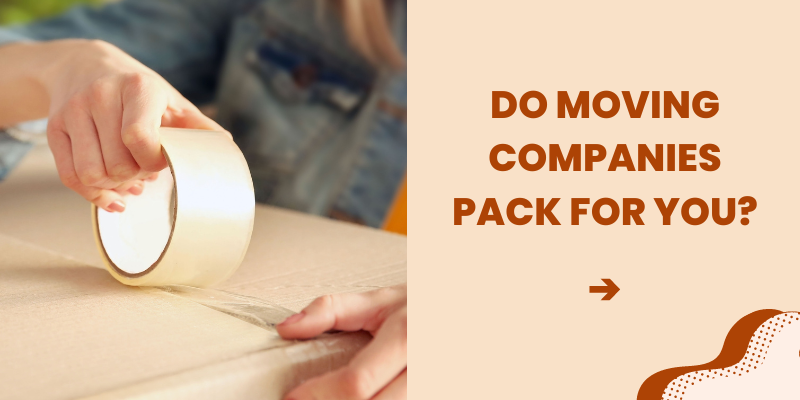When I moved out of my parents’ house for the first time I was 23 years old. It was 2013 and I was moving out on my own with my girlfriend from Los Angeles to San Francisco.
It was a bit scary for me. I was moving with basically no income and no job to one of the most expensive cities in America.
At that time, my girlfriend was starting her 3rd year of college and 1st year at San Francisco State University.
For me, I had about $4k to my name and the goal was to live off of that and her financial aid for the first few months until I was able to grow my business.
After 4 years in San Francisco, we moved back home, paid off some debt, and now we are planning our next move across the country to New York City.
I learned a lot after moving to one of the most expensive cities in the U.S. with almost no income.
Here are my top 10 things I wish I knew before moving out for the first time.
Shopping for food the right way
Moving out on your own is no walk in the park. At first, when we shopped for food, we would just buy anything we wanted to eat at the time. We had no consideration for shelf life, meal planning, deals, etc. In the long run, we ended up spending more money than we needed and throwing away a bunch of food that would go bad.
It wasn’t until I understood the concept of meal planning and finding sales and really understanding how to buy food in an efficient way that we were able to only pay for what we needed. I want to share with you a great article here that goes over the proper ways to shop for food and meal plan for the week.
Here are 6 tips for shopping for food for a new house/apartment
- Understand that some stores specifically sell certain items for cheap to bring people in and other items expensive to make a profit. Know which stores have the best deals on the items you need.
- Buy your spices, sugar, salt, flour, and other staple items at the dollar store. In normal grocery stores, these items can be $2-$10 each while just $1 at the dollar store.
- Buy meat when it goes on sale and freeze it immediately. Some grocery stores will have one day of the week where the meat goes on sale. If you buy a lot and freeze it, you’ll save money in the long run. Just buy a little the first time around though, in case it turns out the meat is low quality.
- Always look at the shelf life of items and whether or not you can freeze them. I don’t know how much vegetables I’ve thrown away due to short shelf life and never getting around to making them.
- Don’t shop when you’re hungry. So many times I’ve been hungry when shopping, so I just threw everything I was craving in the cart. This lead to me throwing away a lot of items that went bad in the next week or two.
- If your grocery store has an app, download it. These apps are filled with coupons and notify you when deals happen.
It’s going to take you a few weeks or even months to get shopping down. But, once you do you’ll be saving money and time on your groceries each week.
I really liked this helpful first apartment grocery list that will help you know what to buy. It was basic and well put together.
Using your credit card puts you on the fast track to moving back with your parents
Having a credit card did save us a couple of times on our first adventure moving out. But, at the same time, we realized the more we needed “saving” or the more we used our credit card for splurges, in the long run, it was the number one thing that forced us to move back home to pay back that debt, before moving out again.
Your credit card isn’t free money. All it is is a growing debt that adds to your monthly expenses until it snowballs so much, you can’t afford to live on your own anymore.
Only use your credit card in dire emergencies. Don’t use it if you REALLY want this new pair of shoes or a new outfit. That little bit of happiness now will lead you to sadness later on.
Apply for food stamps even if you’re not sure you qualify
It wasn’t until about 3 months of living on our own, that I realized that since I personally had almost no income and I wasn’t a college graduate, I was able to apply for assistance in my state. However, my girlfriend was not able to apply since she was receiving financial aid from the government for her schooling. For about a year, until I was able to grow my business, I received about $200 per month on a card that you could buy food with.
Even if you are making an income, it’s worth it to take a trip down to the social services office in your state just to see if you qualify for any assistance. If not, no big deal. But sometimes they’ll give you a little bit of money each month for food depending on your income and circumstances.
Remember, use this as just temporary assistance to get you to the next level. Don’t see it as a crutch you’ll use forever. With that mindset, you’ll never make enough money to live comfortably on your own.
Don’t splurge on home goods right when you move in
It’s very tempting when moving out on your own for the first time to start buying a bunch of stuff for your apartment
I remember when we first moved in we bought things like crockpots, blenders, shelving units etc. We ended up not even using these items at all but just had the dream of using them one day.
Be careful of what you buy when first moving in and make sure what you buy you’ll actually use.
Instead of buying a load of unnecessary items, make a wish list on Amazon or somewhere else to scratch that itch. Then one day, when you feel like you actually might need something, just buy it at that time. This will keep you from racking up your credit card and paying interest on stuff you don’t use.
You can also have a housewarming party with your friends and family and ask for some housewarming gifts 😉
If you need certain items, always consider buying at the dollar store, thrift stores, or on sites like Craigslist, OfferUp, or eBay. You can even find certain items you may need for free in the free section on Craigslist.
Move in November, December or January
If you’re hiring a moving company or even renting a moving truck, the moving costs are usually cheaper during these times.
Also, when you move during these months, you’ll be able to put items on your holiday wish list for family members to buy you. You can also ask for gift certificates to stores like Target, Walmart, or Amazon to go towards items you’ll need to buy.
If moving in with roommates, set rules and boundaries at the beginning
I only had this situation a bit with my girlfriend, but I’ve heard stories of my friends who didn’t establish rules and boundaries when first moving in.
If you don’t set rules and boundaries when you first move in, you’ll find yourself contributing more or doing more chores around the house, while your roommates continue to live their lives like they used to, when their mommies picked up after them.
If sharing your with roommates or a girlfriend/boyfriend, talk about who’s paying for what and what chores are expected of everybody at the beginning. Doing it later can lead to immature fights and backlash from people who aren’t mature enough to take care of themselves.
I found this great article on what rules to establish with roommates to be super helpful.
Lower your expectations when looking for places
After living at home for years with all the amenities my parents were able to provide didn’t really set me up for reality when moving out for the first time. That lead to us getting into a place that we could barely afford because we insisted that we needed a washer and dryer and dishwasher in our apartment. We could have easily saved a few hundred dollars per month if we lowered our expectations when looking for a place.
For us, the apartment complex we moved into was remodeling its units at the time. The first year, we moved into a newly remodeled unit and didn’t know we could have asked to move into a non-remodeled unit for hundreds of dollars less for the same amount of space. If your apartment complex is renovating units, ask if there are non-renovated units available.
Don’t be scared to ask questions and look at everything when inspecting places
In the first place we lived, we looked at everything. I thought I had this one nailed, and I did. However, in the second place we moved to I wasn’t such a sleuth when it came to looking for faults. This led to annoying low water pressure and cold nights since the place had bad insulation in the walls. Always, when moving into a new place, look in every nook and cranny before deciding and know what you’ll be moving into for the next year or so.
Here’s a great article on 10 things to look for when moving into a new apartment.
Check for cell phone reception
We didn’t have much problem with this one since I did remember to look for this. But this one makes the list because many people do forget to check for cell phone reception. There would be nothing more annoying than to have no service at your new place and have to go outside or some special place in the house to make a phone call.
Understand what you can afford and don’t sign a lease on something you can’t
The highest expense you’ll have when moving out for the first time is going to be your rent. You can easily save a couple of thousand dollars per year if you make sure you only sign a lease on something you can afford.
Also, when doing your move-in expenses, you’ll likely have to pay the first month, last month, and security deposit. And if you have pets, you likely need another separate deposit for them.
You’ll also want to factor in your moving costs. Moving can be expensive, especially if you have a lot of items to move or you’re moving long-distance. And if you’re interested, here’s a breakdown of how movers charge for their services so you can get an understanding of what you’re looking at.
I also wrote another great resource on how to save money on your move you can check out.
Add some cushion to the budget and monthly expenses
Of course, making a list of your expenses and understanding what you can afford is the most important thing to do when moving out for the first time. But, when I did this, I always seemed to spend about $300-$500 more each month, which ended up all going on my credit card.
This happened because every month there was some expense that I didn’t account for like car registration, or something happened and we needed to take our dog to the vet, or we just felt like being young for a couple of weekends a month and we went out.
When doing your budget and expenses, I recommend adding an extra $300-$500 a month for any unexpected costs, because they will happen.
Before I go, I also want to share with you this helpful checklist on all the things you have to do after you move in. I didn’t do all of these when I first moved out, but if I did, it would have made my experience much easier.




